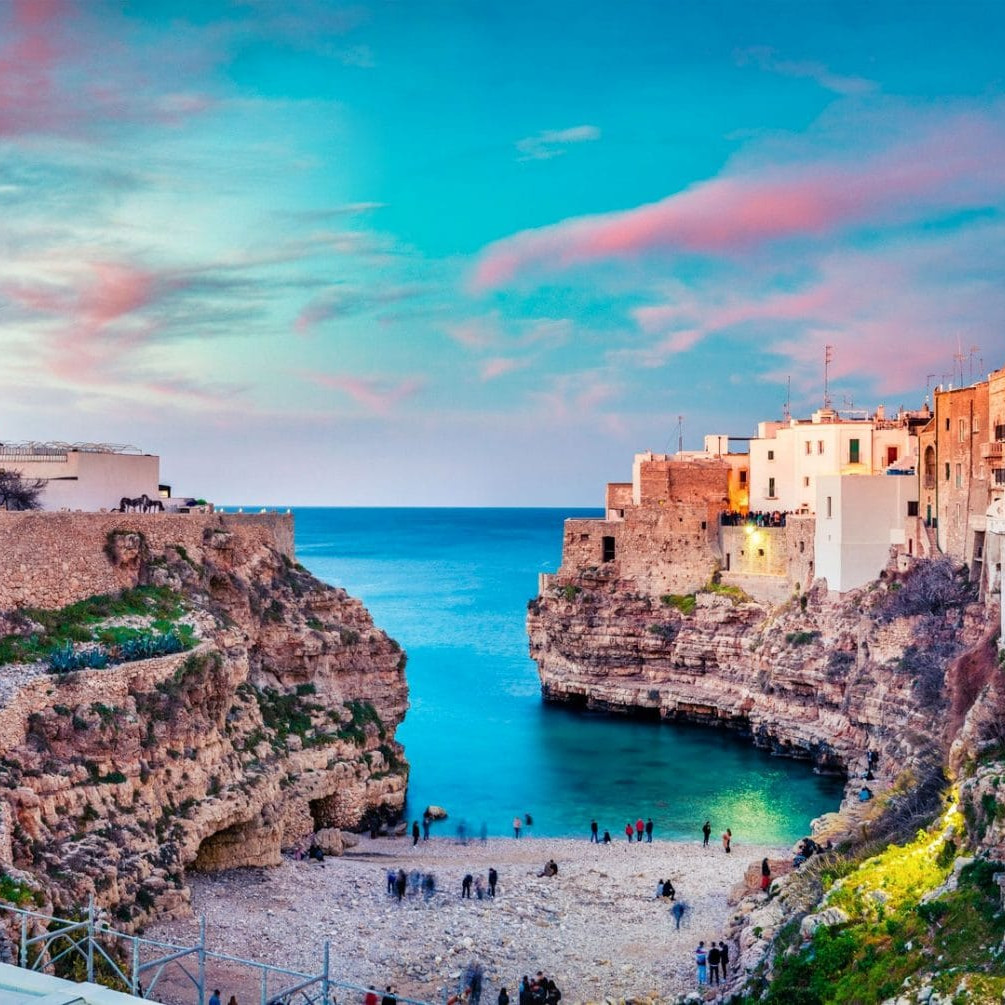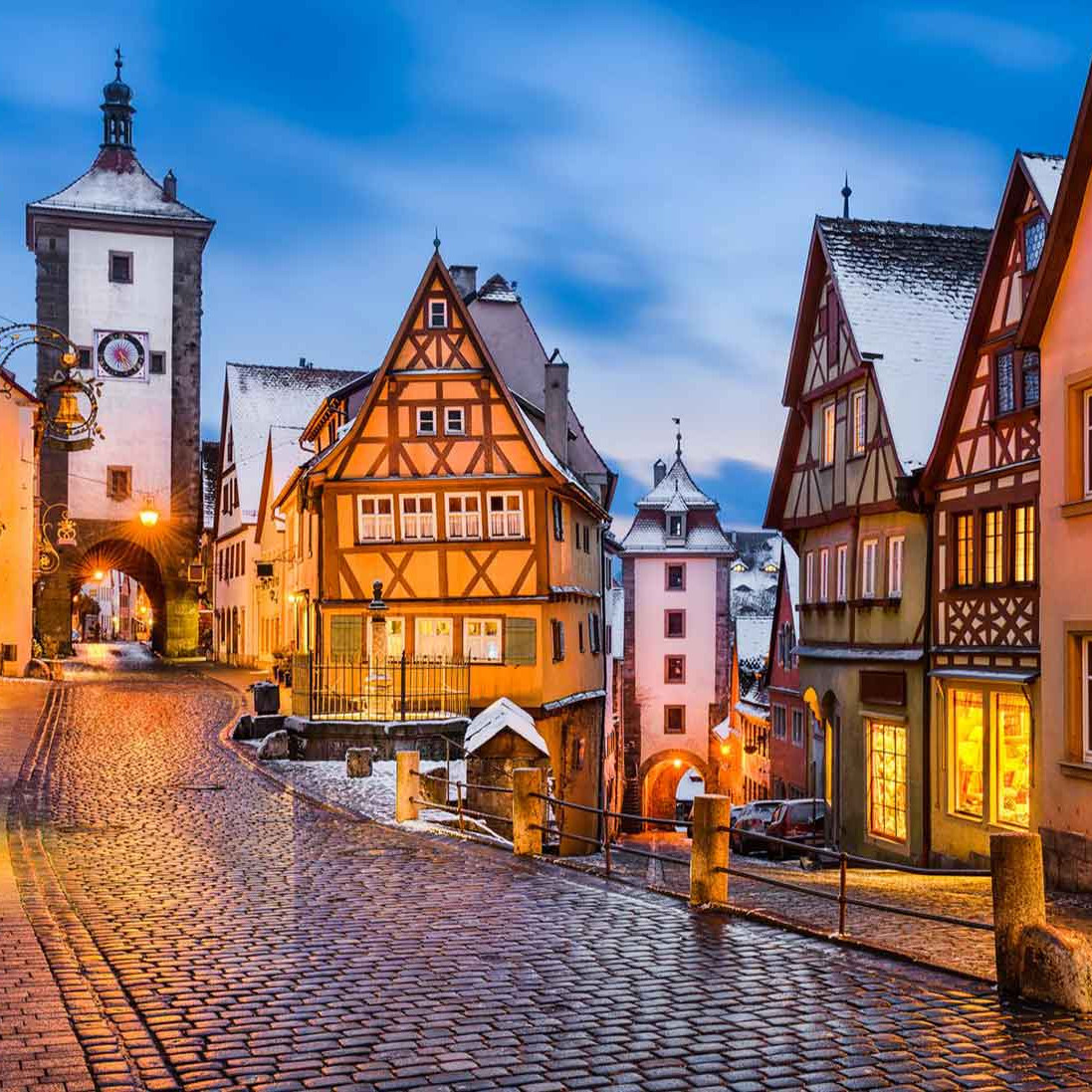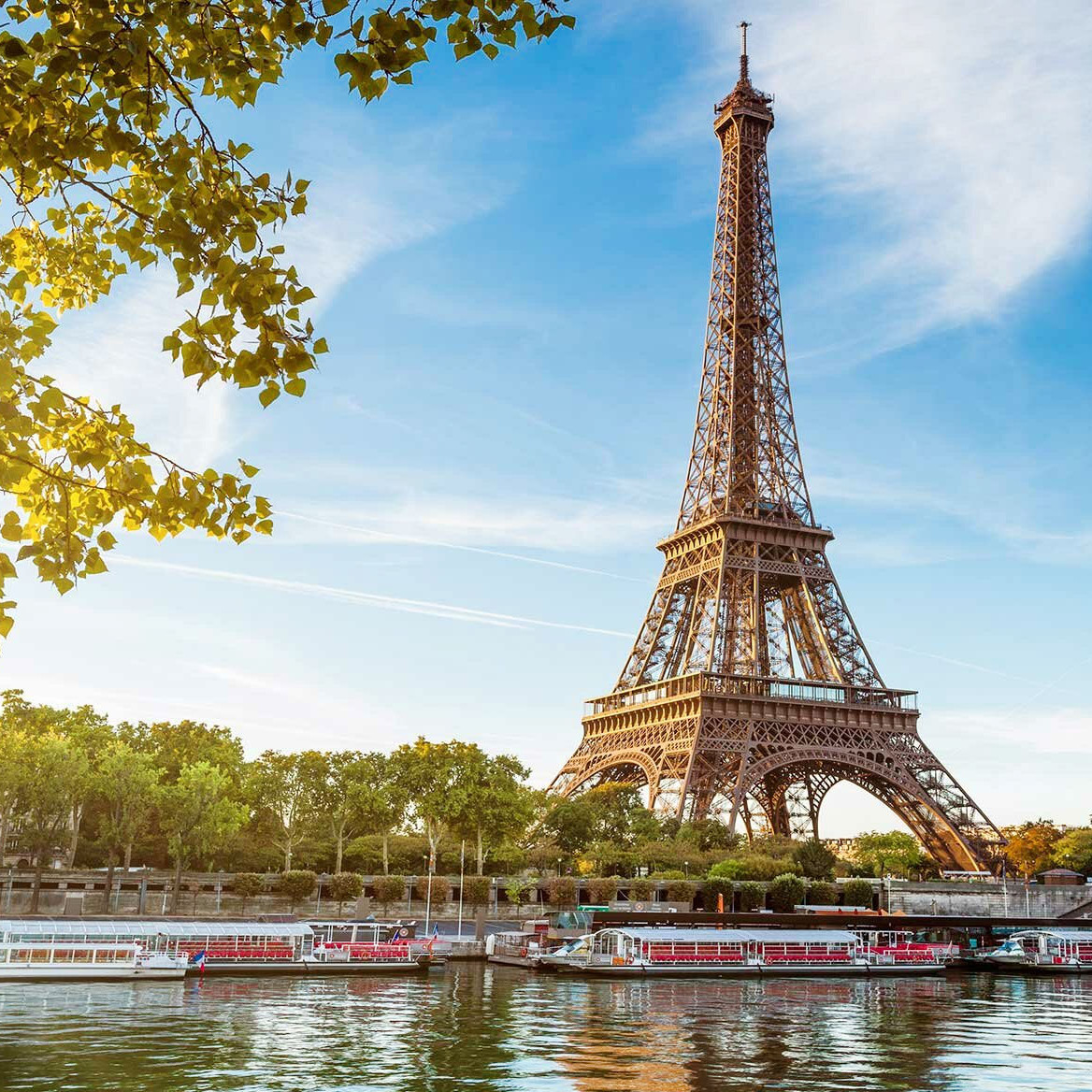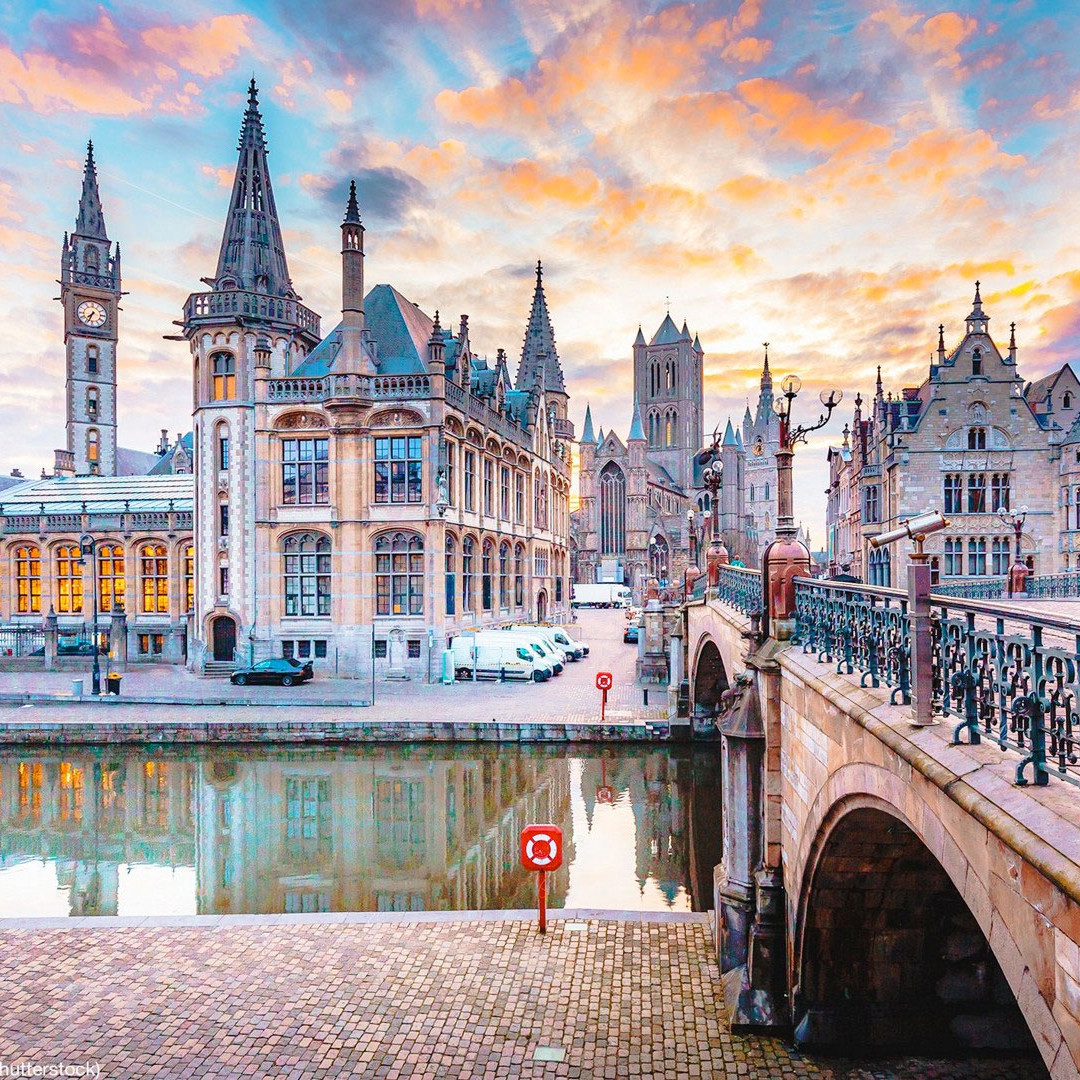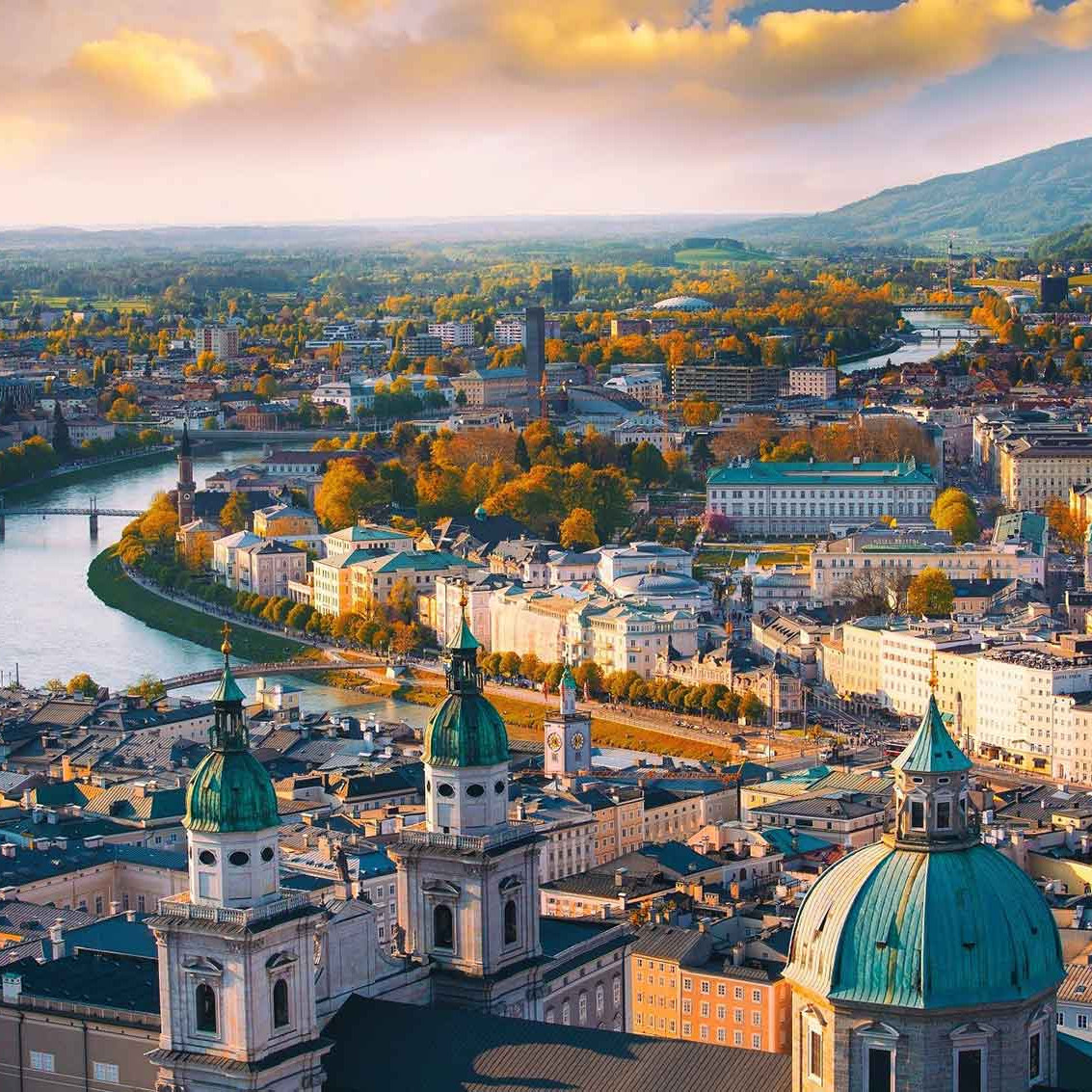Located in the confluence of Western, Central, and Southern Europe, Switzerland produces and eats the most chocolate in the world. The country also offers spectacular mountain scenery and peaceful environments, cosmopolitan cities and is one of the safest and cleanest countries in the world.
Why Visit Switzerland
CULTURE & DIVERSITY
Switzerland is a melting pot for many reasons. To start, the country was inhabited by the Celts, the Helvetii, and the Raetians, who shaped the culture of Switzerland and the reason why there are so many different languages spoken in the country. Three of the continent’s major languages, German, French and Italian, are national languages of Switzerland, along with Romansh, spoken by a small minority. Switzerland was also a place of refuge for political exiles from all over the world. Nowadays, the country is home to more than 190 nationalities.
SCENERY
Switzerland is famous for its snow-capped mountain ranges that dominate the skyline. However, there is much more to it. The country is home to impressive waterfalls and lakes, emerald valleys, glaciers, and picturesque lakeside villages that will make you feel like you are on a fairytale.
CHOCOLATE
Switzerland is well-known for its chocolate, the place where milk chocolate was invented. Swiss chocolate is renowned worldwide for its exceptional quality and exquisite taste. Indulge in a visit to one of the many chocolate factories or chocolatiers, where you can learn about the chocolate-making process and, of course, savor the delicious treats.
SAFETY & CLEANLINESS
Switzerland ranks 7th globally in terms of safety and security according to the Safe Cities Index. It also has one of the best environmental records in the world. It is heavily active in recycling and anti-littering regulations and is one of the top recyclers in the world.
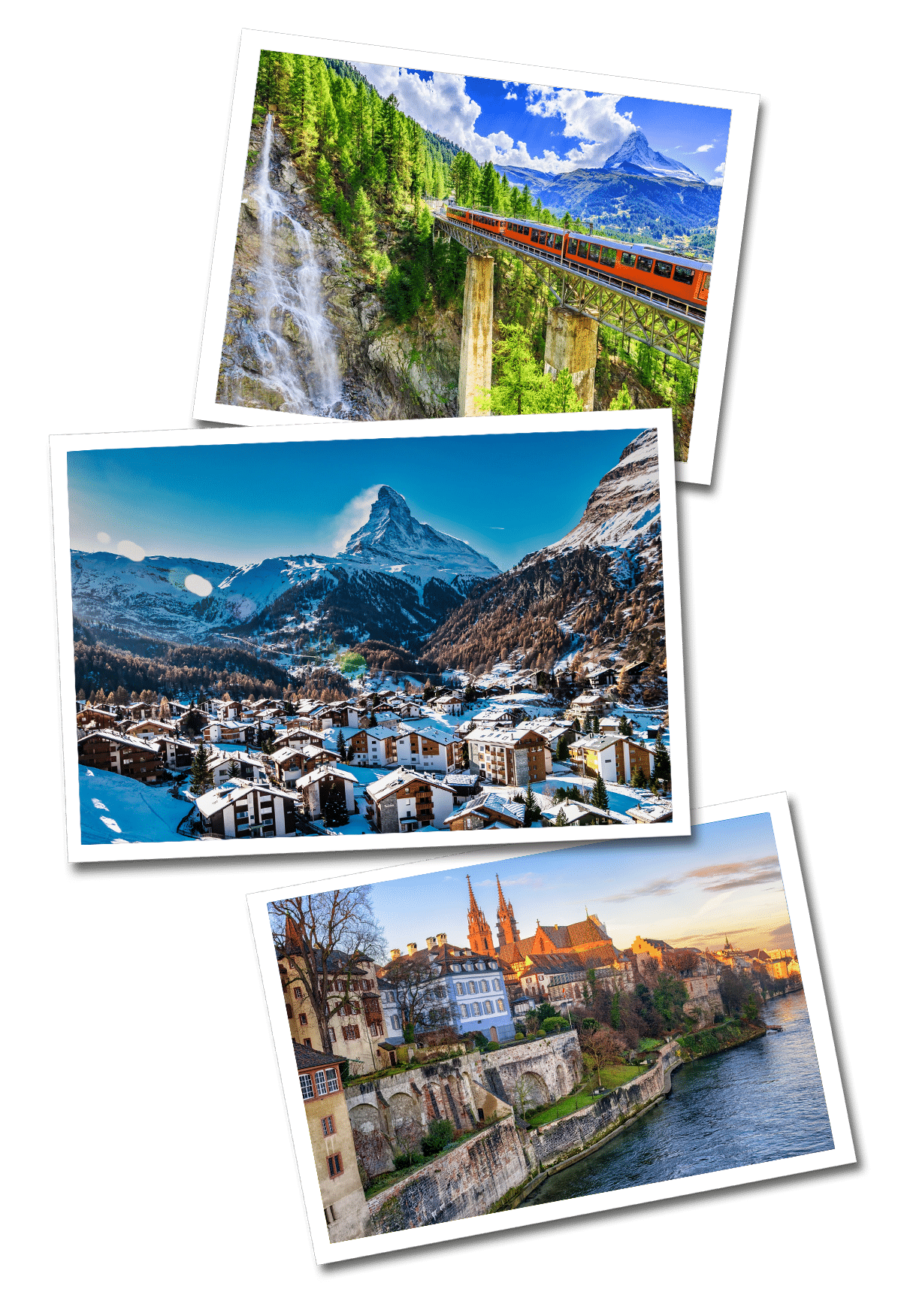
Located in the confluence of Western, Central, and Southern Europe Europe, Switzerland produces and eats the most chocolate in the world. The country also offers spectacular mountain scenery and peaceful environments, cosmopolitan cities and is one of the safest and cleanest countries in the world.
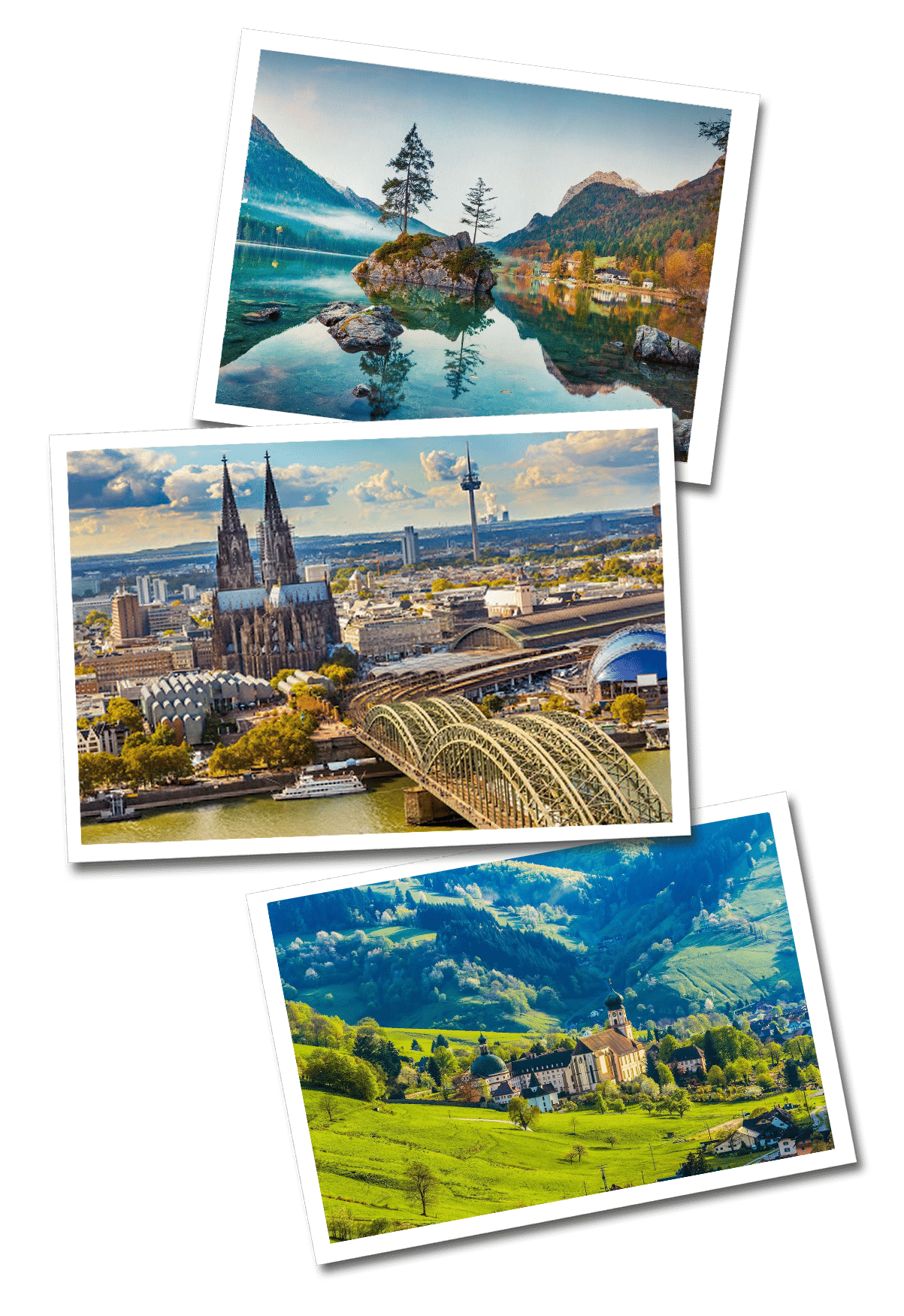
Why Visit Switzerland
CULTURE & DIVERSITY
Switzerland is a melting pot for many reasons. To start, the country was inhabited by the Celts, the Helvetii, and the Raetians, who shaped the culture of Switzerland and the reason why there are so many different languages spoken in the country. Three of the continent’s major languages, German, French and Italian, are national languages of Switzerland, along with Romansh, spoken by a small minority. Switzerland was also a place of refuge for political exiles from all over the world. Nowadays, the country is home to more than 190 nationalities.
SCENERY
Switzerland is famous for its snow-capped mountain ranges that dominate the skyline. However, there is much more to it. The country is home to impressive waterfalls and lakes, emerald valleys, glaciers, and picturesque lakeside villages that will make you feel like you are on a fairytale.
CHOCOLATE
Switzerland is well-known for its chocolate, the place where milk chocolate was invented. Swiss chocolate is renowned worldwide for its exceptional quality and exquisite taste. Indulge in a visit to one of the many chocolate factories or chocolatiers, where you can learn about the chocolate-making process and, of course, savor the delicious treats.
SAFETY & CLEANLINESS
Switzerland ranks 7th globally in terms of safety and security according to the Safe Cities Index. It also has one of the best environmental records in the world. It is heavily active in recycling and anti-littering regulations and is one of the top recyclers in the world.
Bucket List
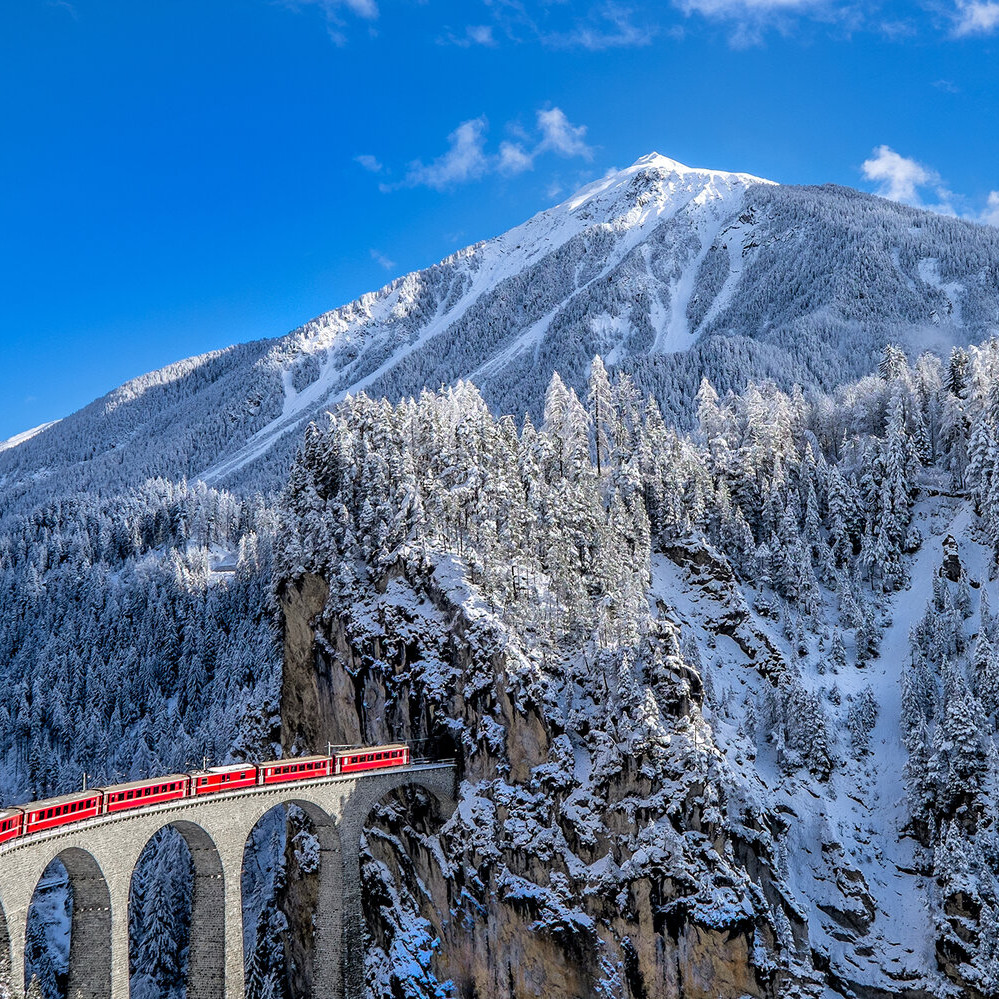
Take the Glacier Express
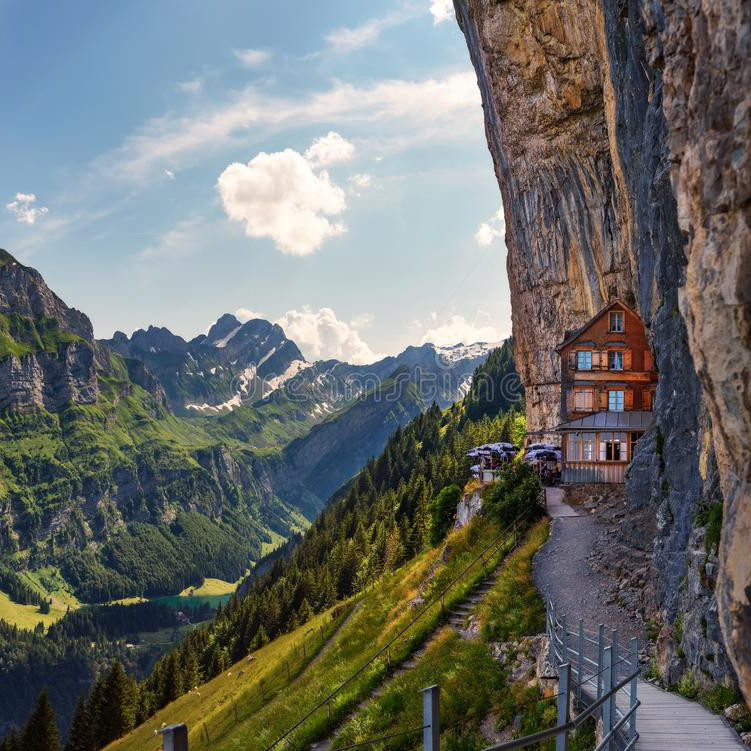
Go grab a bite at the Aescher Restaurant
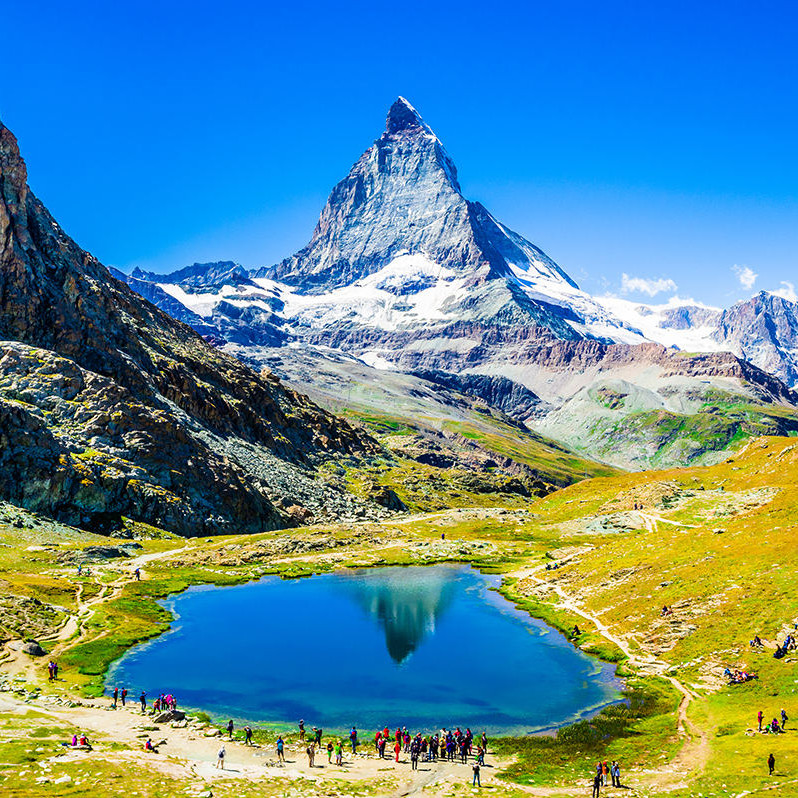
Take a picture of the most most photographed mountain, The Matterhorn
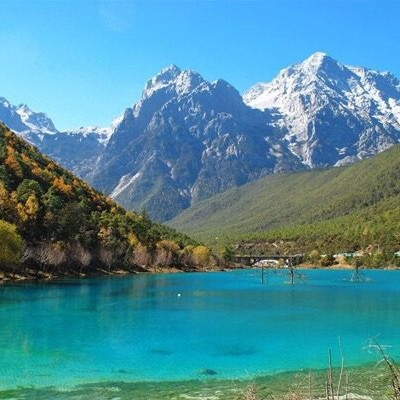
See the Alps from the Lake Blausee
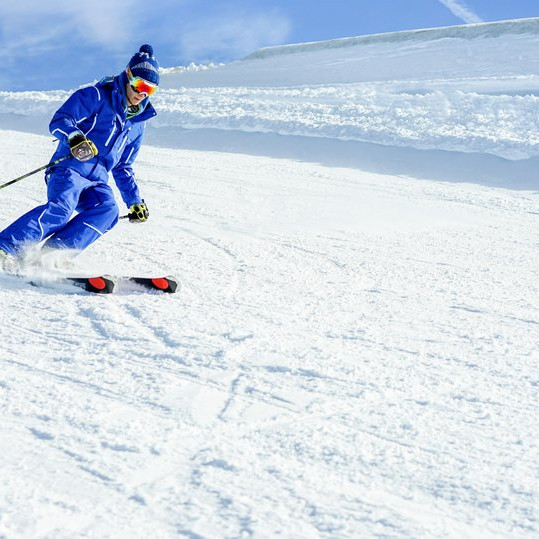
Go skiing on the Alps
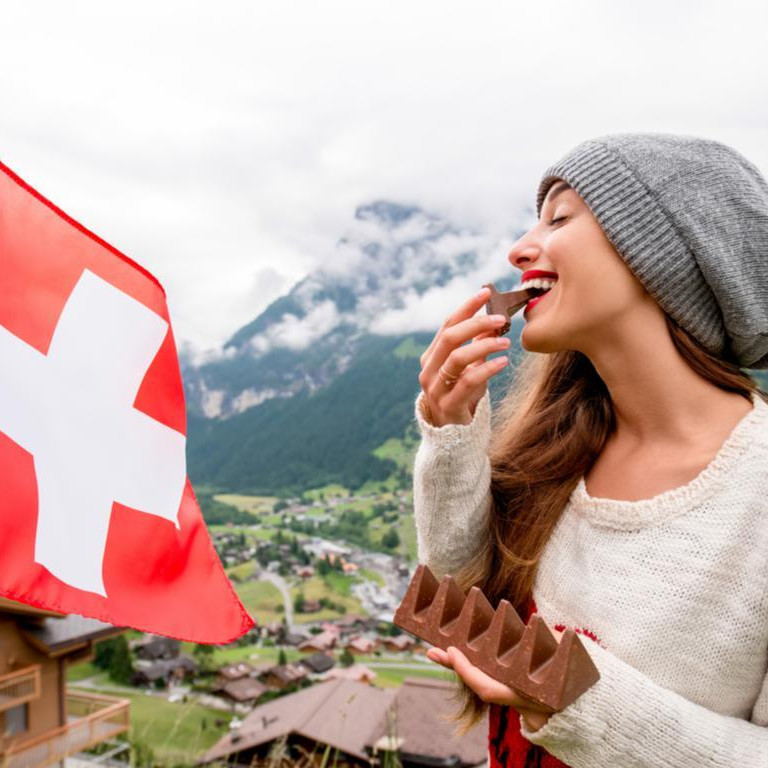
Try some Swiss Chocolate
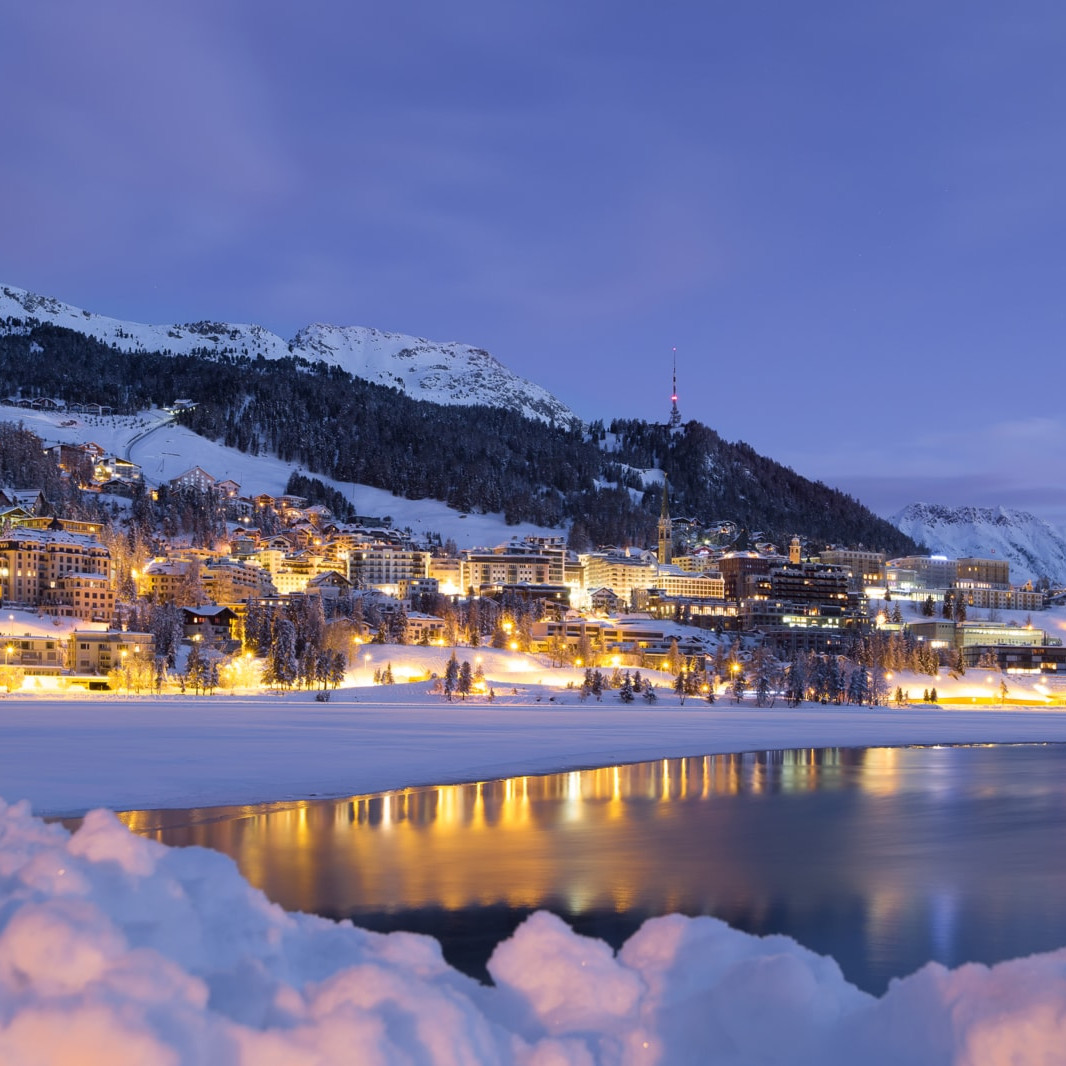
Visit the picturesque town of St. Moritz
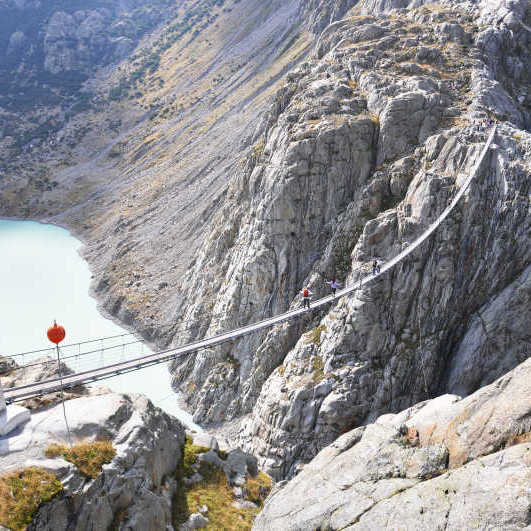
Walk on the Trift bridge
What to expect in Switzerland
LANGUAGE
Switzerland is a multilingual country with four official languages: German, French, Italian, and Romansh. The distribution of these languages varies across different regions of the country. German is spoken by the majority, particularly in the central and eastern parts, while French is spoken in the western region, Italian in the southern part, and Romansh in a small area in the southeast.
ELECTRICITY
In Switzerland the standard voltage is 230 V and the frequency is 50 Hz. That’s the standard voltage in the UK, Europe, Australia and most of Asia and Africa; If you are traveling from the US you will need an adaptor.
CURRENCY
The Swiss franc is the official currency in Switzerland. Other foreign currencies, like dollars and euros, might be accepted at tourist attractions and hotels, but they won’t be accepted at other establishments. Credit cards are widely accepted, and you can exchange your money at any bank or withdraw it directly from the ATM. 1 USD equals 0.93 Swiss Franc (2023)
CLIMATE
The climate in Switzerland is very diverse thanks to its different altitudes. The average annual temperature is 48° F (9° C), moderately continental in the plateau, Alpine in the mountains, and more temperate in the Canton of Ticino. The best time to visit Switzerland is during the shoulder seasons, between April and June, and September to October, when the weather is no extreme.
SAFETY
Switzerland is one of the safest countries in the world. There may be pickpockets in tourist areas, but that’s about it. The country place ranks low for violent crime.
How to get around
Getting around Switzerland is convenient and efficient, thanks to its well-developed transportation network. Here are the various ways to explore this beautiful country:
- Trains: Switzerland is renowned for its extensive train system, which is considered one of the best in the world. The Swiss Federal Railways (SBB) connects major cities, towns, and picturesque regions, offering scenic journeys and punctual service.
- Buses: Local and regional buses complement the train network, providing connectivity to areas not covered by trains. Bus routes are well-organized and can take you to charming villages, mountain destinations, and remote areas.
- Trams and Metro: Major cities like Zurich, Geneva, Basel, and Bern have efficient tram and metro systems that make it easy to navigate within urban areas. These systems are reliable, frequent, and well-connected.
- Ferries: Switzerland’s lakes, such as Lake Geneva, Lake Lucerne, and Lake Zurich, offer ferry services. Enjoy a scenic boat ride while admiring the surrounding mountains and landscapes.
- Cable Cars and Funiculars: Switzerland’s mountainous terrain is best explored using cable cars and funiculars. These transport options take you to stunning viewpoints, hiking trails, ski resorts, and mountain peaks.
- Rental Cars: If you prefer the flexibility of driving, you can rent a car to explore Switzerland. The country has a well-maintained road network and picturesque driving routes, but keep in mind that parking in cities can be expensive.
- Bicycles: Switzerland is bicycle-friendly, with dedicated bike paths and rental options available in many cities. Cycling is a great way to explore urban areas and scenic regions, providing a closer connection to the surroundings.
With these transportation options, you can easily navigate Switzerland, whether you’re traveling between cities, venturing into the mountains, or exploring charming towns and villages. The efficient and reliable public transportation system ensures that you can enjoy the diverse attractions and landscapes of Switzerland with ease.
Visa Policy
Switzerland, as a member of the Schengen Area, follows the visa policy established for the Schengen Zone. Nationals of certain countries are exempt from obtaining a visa for short-term visits to Switzerland and are granted visa-free entry. The following list includes some countries that do not require a visa to enter Switzerland for stays up to 90 days within a 180-day period:
- European Union (EU) member states: Austria, Belgium, Bulgaria, Croatia, Cyprus, Czech Republic, Denmark, Estonia, Finland, France, Germany, Greece, Hungary, Ireland, Italy, Latvia, Lithuania, Luxembourg, Malta, Netherlands, Poland, Portugal, Romania, Slovakia, Slovenia, Spain, Sweden.
- Schengen Agreement signatory countries: Iceland, Liechtenstein, Norway.
- Other countries: Andorra, Australia, Canada, Japan, New Zealand, South Korea, Switzerland, United Kingdom, United States.
Citizens of countries not listed above are generally required to obtain a Schengen visa before traveling to Switzerland. It’s important to note that visa requirements and exemptions can vary depending on the purpose and duration of the visit, so it’s advisable to check with the Swiss embassy or consulate in your home country for the most up-to-date information and specific requirements for your nationality.
SUBSCRIBE!
Are you a globetrotter? Join our platform and get exclusive travel tips, getaways and more!
Italy
Travel Italy, a country like no other. The country boots an incredible history and culture, with landmarks on every corner, incredible..
Germany
Travel Germany, a country with rich history that dates back 2 millennia. With beautiful scenery, a great mix between medieval and modern..
France
Travel France, the biggest and most visited country in the European Union. Well known for its capital, Paris, the country has a lot to..
Belgium
Travel Belgium, is a small country known as the world capital of the beer and the chocolate. The is also home to amazing architecure and..
Austria
Travel Austria and explore its mountainous landscapes, picturesque villages, incredible castles and architecture and rich musical heritage.
Italy
Travel Italy, a country like no other. The country boots an incredible history and culture, with…
Germany
Travel Germany, a country with rich history that dates back 2 millennia. With beautiful scenery, a…
France
Travel France, the biggest and most visited country in the European Union. Well known for its…


